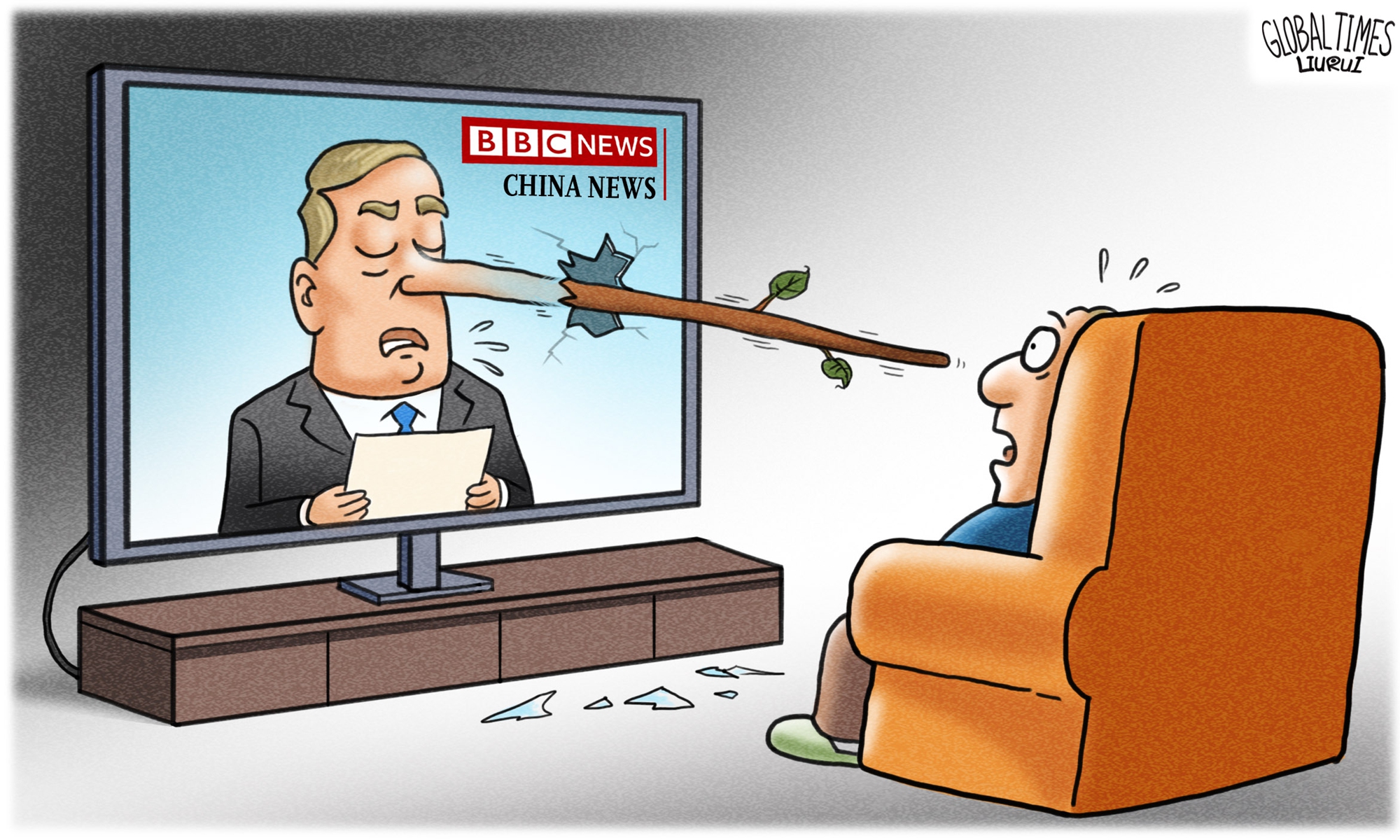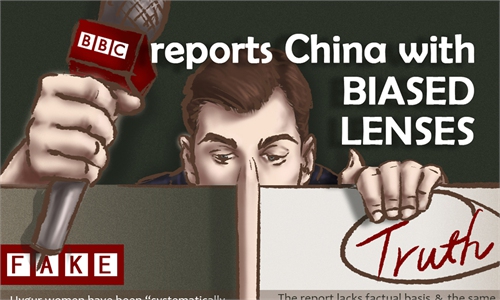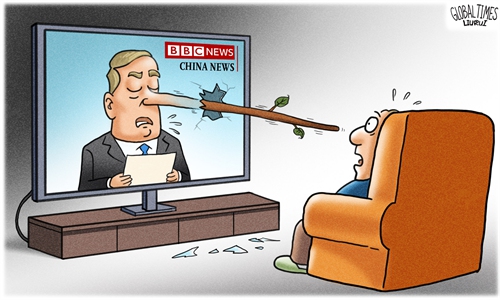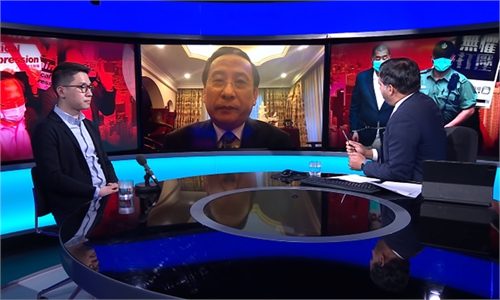
Fake news is like Pinocchio's nose, the more you lie, the longer it grows. Illustration: Liu Rui/GT
It is undeniable that the West, especially the US, has started a propaganda war with rival countries, particularly China and Russia. Labeling its opponents and their media is one of the common tactics of the West. For instance, the Global Times is often labeled as "China's nationalist tabloid." And Russian media outlet RT is smeared as "pro-Kremlin" or "state-controlled."Recently, it's noticeable that certain Western media outlets are becoming more and more like the so-called state media. One twitter user wrote that the, "New York Times front page of the World section is currently: Russia bad, China crazy, Iran weak. Who needs state media when you have this?"
Speaking of state media, last August, Twitter started to specifically label some media outlets from China and Russia as "state-affiliated media". According to the social network, this aims at providing "additional context" so that people, "can make informed decisions about what they see and how they engage on Twitter." This policy implies that people only need to be extremely careful with state media from countries like China and Russia — as if only these countries have "suspicious" state media.
On the contrary, no Western media has this label. However, nothing seems to be incongruous if Twitter labels Western media such as the New York Times as "US govt-affiliated media" or "Democratic Party-controlled media." Such labels could explain why those media have many biased reports that they think are objective and fair. It is clear that they have strong political orientations and bias.
In Twitter's definition of "state media", it doesn't matter whether or not the news is from an official voice or whether it is funded by the state. Because state-financed media organizations with editorial independence such as BBC, as Twitter exemplified, are not considered as "state-affiliated media".
Let's take a look at the Voice of America (VOA). This is a US media group that is funded by the US government through the US Agency for Global Media (USAGM), according to its official website. Last June, Donald Trump appointed a conservative filmmaker named Michael Pack to be the chief executive of USAGM. This caused worries from US media that Pack will turn the "VOA into a propaganda tool of the White House." Well the truth is, political interference in VOA's reporting is nothing new.
An article of US news company Politico, entitled, "Let's Get America Out of the Propaganda Racket", argues that the tension between the presidents who control VOA and the journalists who are supposed to report VOA news fairly has plagued the agency since its beginnings. It then goes on listing the interference of several US presidents and officials in some of VOA's news coverage of stories — from the Vietnam War to the Watergate scandal to the Iraq War.
Yet, Twitter doesn't think the media is affiliated with the government, since no label of "state-affiliated media" is given to VOA.
Another example is the BBC, or the Biased Broadcasting Corporation jokingly called by some Chinese netizens. This British media has been repeatedly accused of making biased reports that distort facts, confuse people, and mislead the public. For example, last April, the spokesperson of the Russian Foreign Ministry said that the British regulator should fine the BBC for "creating a negative perception of Russia".
Moreover, the BBC has repeatedly smeared China through lies and misinformation, especially on the Xinjiang issue recently. It has gone far from objective reporting. The BBC has become a propaganda tool of the West.
The Western media is a product of the Western political system. Much of its coverage is a tool for partisan struggle. Regarding the coverage of international affairs, many Western media seem to have become one voice. As a result, under the influence of these media, Russia and China (in the eyes of the West), for example, are always the same no matter what: authoritarian and evil empire.
Through biased reporting, some Western media outlets have formed stereotypes of certain countries. They are not qualified to question the objectivity of state-affiliated media outlets of other countries, nor are they in any position to claim they have no prejudice.
The author is a reporter with the Global Times. opinion@globaltimes.com.cn



